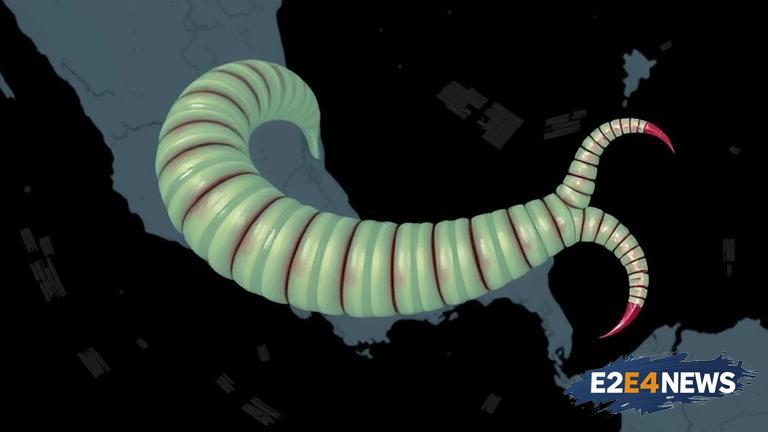A recent case of flesh-eating screwworm has been detected in a US patient who had traveled to Central America, prompting concerns about the spread of the disease. The patient, who has not been named, had visited Central America, where an outbreak of the disease has been reported. The screwworm, also known as Cochliomyia hominivorax, is a parasitic fly that lays its eggs in the flesh of mammals, including humans. The larvae then feed on the flesh, causing severe tissue damage and potentially life-threatening complications. The US patient is being treated for the infection, and health officials are working to prevent further spread of the disease. The outbreak in Central America has been ongoing, with multiple cases reported in recent months. The screwworm is typically found in tropical and subtropical regions, and is often spread through the movement of infected animals. However, human cases are rare, and the disease is usually associated with animal infections. The US Centers for Disease Control and Prevention (CDC) has issued a warning about the risk of screwworm infection for travelers to Central America. The agency is advising travelers to take precautions to avoid exposure to the disease, including wearing protective clothing and avoiding contact with animals that may be infected. The CDC is also working with international health authorities to monitor the outbreak and prevent further spread of the disease. The World Health Organization (WHO) has also been notified of the outbreak, and is providing support to affected countries. The screwworm outbreak in Central America has significant implications for public health, as well as for the region’s animal health and agriculture sectors. The disease can have a major impact on livestock production, and can also affect human health, particularly in rural areas where access to medical care may be limited. Health officials are urging travelers to be aware of the risks associated with the disease, and to take steps to protect themselves. This includes avoiding contact with animals that may be infected, and seeking medical attention immediately if symptoms occur. The symptoms of screwworm infection can include severe pain, swelling, and discharge at the site of the wound, as well as fever and other systemic symptoms. If left untreated, the infection can lead to serious complications, including tissue damage, organ failure, and even death. The treatment for screwworm infection typically involves surgical removal of the larvae, as well as antibiotic therapy to prevent secondary infections. In some cases, patients may require hospitalization and ongoing medical care to manage the infection and prevent long-term complications. The US patient who was diagnosed with screwworm infection is currently receiving treatment, and is expected to make a full recovery. However, the case highlights the importance of awareness and precautions to prevent the spread of the disease. The CDC and other health authorities will continue to monitor the outbreak and provide updates as necessary. In the meantime, travelers to Central America are advised to exercise caution and take steps to protect themselves from the disease. This includes avoiding contact with animals that may be infected, wearing protective clothing, and seeking medical attention immediately if symptoms occur. By taking these precautions, travelers can reduce their risk of infection and help prevent the spread of the disease. The screwworm outbreak in Central America is a significant public health concern, and highlights the importance of international cooperation and collaboration to prevent the spread of infectious diseases.
